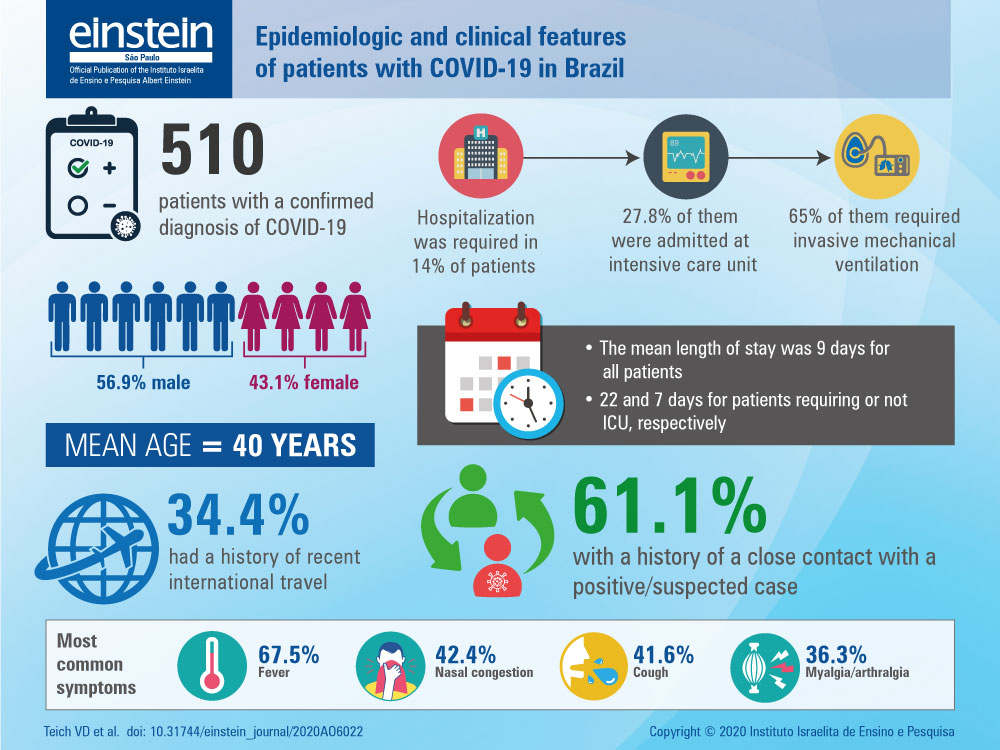einstein (São Paulo). 12/Aug/2020;18:eAO6022.
Epidemiologic and clinical features of patients with COVID-19 in Brazil
DOI: 10.31744/einstein_journal/2020AO6022
ABSTRACT
Objective
This study describes epidemiological and clinical features of patients with confirmed infection by SARS-CoV-2 diagnosed and treated at Hospital Israelita Albert Einstein , which admitted the first patients with this condition in Brazil.
Methods
In this retrospective, single-center study, we included all laboratory confirmed COVID-19 cases at Hospital Israelita Albert Einstein , São Paulo, Brazil, from February until March 2020. Demographic, clinical, laboratory and radiological data were analyzed.
Results
A total of 510 patients with a confirmed diagnosis of COVID-19 were included in this study. Most patients were male (56.9%) with a mean age of 40 years. A history of a close contact with a positive/suspected case was reported by 61.1% of patients and 34.4% had a history of recent international travel. The most common symptoms upon presentation were fever (67.5%), nasal congestion (42.4%), cough (41.6%) and myalgia/arthralgia (36.3%). Chest computed tomography was performed in 78 (15.3%) patients, and 93.6% of those showed abnormal results. Hospitalization was required for 72 (14%) patients and 20 (27.8%) were admitted to the Intensive Care Unit. Regarding clinical treatment, the most often used medicines were intravenous antibiotics (84.7%), chloroquine (45.8%) and oseltamivir (31.9%). Invasive mechanical ventilation was required by 65% of Intensive Care Unit patients. The mean length of stay was 9 days for all patients (22 and 7 days for patients requiring or not intensive care, respectively). Only one patient (1.38%) died during follow-up.
Conclusion
These results may be relevant for Brazil and other countries with similar characteristics, which are starting to deal with this pandemic.
5,174


